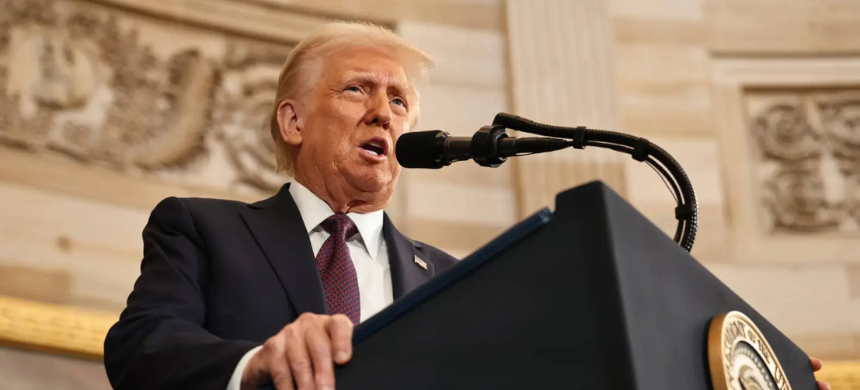Trump Pardons Silk Road Founder Ross Ulbricht, Sparking Debate on Digital Rights and Government Overreach
Former President Donald Trump has granted a full pardon to Ross Ulbricht, the founder of the notorious dark web marketplace Silk Road, sparking controversy around issues of digital rights, government overreach, and the legality of online platforms. The decision, announced on Tuesday, follows years of debate over Ulbricht’s life sentence for his role in creating Silk Road—a digital black market that facilitated the illegal trade of drugs, weapons, and other illicit goods.
In a post on Truth Social, Trump expressed frustration with the severity of Ulbricht’s sentence, calling it “ridiculous” and criticizing the “scum” involved in his conviction. He also linked Ulbricht’s prosecution to what he described as the “weaponization of government” against him, a reference to his own political struggles. Trump further showed his support by calling Ulbricht’s mother to inform her of the pardon and emphasizing the influence of the Libertarian Movement that had supported his presidency.
“I just called the mother of Ross William Ulbricht to let her know that in honor of her and the Libertarian Movement, which supported me so strongly, it was my pleasure to have just signed a full and unconditional pardon of her son, Ross,” Trump said.
Who is Ross Ulbricht?
Ross Ulbricht, 40, was arrested in 2013 and convicted in 2015 for creating and operating Silk Road, a dark web marketplace that allowed users to anonymously buy and sell illegal goods using Bitcoin. At its peak, the platform facilitated over 1.5 million transactions worth more than $213 million, including $183 million in illicit drug sales.
Despite his life sentence without parole, Ulbricht’s case has become a symbol for digital freedom, with supporters arguing that he was unfairly prosecuted for merely providing a platform for transactions rather than directly engaging in criminal activities. Ulbricht’s supporters have long rallied for his release, with many claiming that his conviction was an example of government overreach. As of 2024, Ulbricht had served more than a decade behind bars.
Read More: International Police Seizes Dark Web Market Recovers Millions of Dollars
What is the Dark Web?
The dark web refers to a hidden part of the internet that requires special software, like Tor, to access. While often associated with illegal activities such as drug trafficking, money laundering, and human trafficking, the dark web is also used by individuals seeking privacy, such as journalists, activists, and whistleblowers, especially in oppressive governments.
By providing anonymity through encryption and anonymizing technologies, the dark web enables users to communicate and transact without revealing their identities. However, it has also become a haven for those engaged in criminal activities.
What is Silk Road?
Silk Road, created by Ulbricht in 2011 and operated under the alias “Dread Pirate Roberts,” was one of the first and most infamous dark web marketplaces. The platform allowed users to buy and sell illegal goods anonymously using Bitcoin, making it an ideal space for illicit trade. While Silk Road was originally marketed as a platform for free-market libertarians, it quickly became a hub for illegal drugs, counterfeit goods, hacking tools, and more.
At its peak, Silk Road had over 4,000 drug vendors and served more than 100,000 customers worldwide. The marketplace generated significant revenue, with Ulbricht reportedly earning $18 million in Bitcoin commissions. The platform’s anonymous nature, facilitated by the Tor network, made it difficult for law enforcement agencies to trace its users, allowing it to operate for several years without significant interference.
Despite its closure by the FBI in 2013, Silk Road’s shutdown did not end dark web markets. Other platforms quickly emerged to take its place, continuing the cycle of illegal digital trade.
Legal and Ethical Implications
Trump’s pardon of Ross Ulbricht has intensified the ongoing debate over the role of online platforms in facilitating illegal activities. Supporters argue that Ulbricht’s actions were in line with his beliefs in digital freedom, while critics maintain that he facilitated dangerous illegal activities and should have been held accountable for his actions. The case raises questions about the balance between freedom of expression, privacy, and government regulation in the digital age.
As digital rights continue to evolve, the Silk Road case serves as a significant milestone in the ongoing struggle to define the boundaries of online platforms and the responsibilities of those who operate them.











